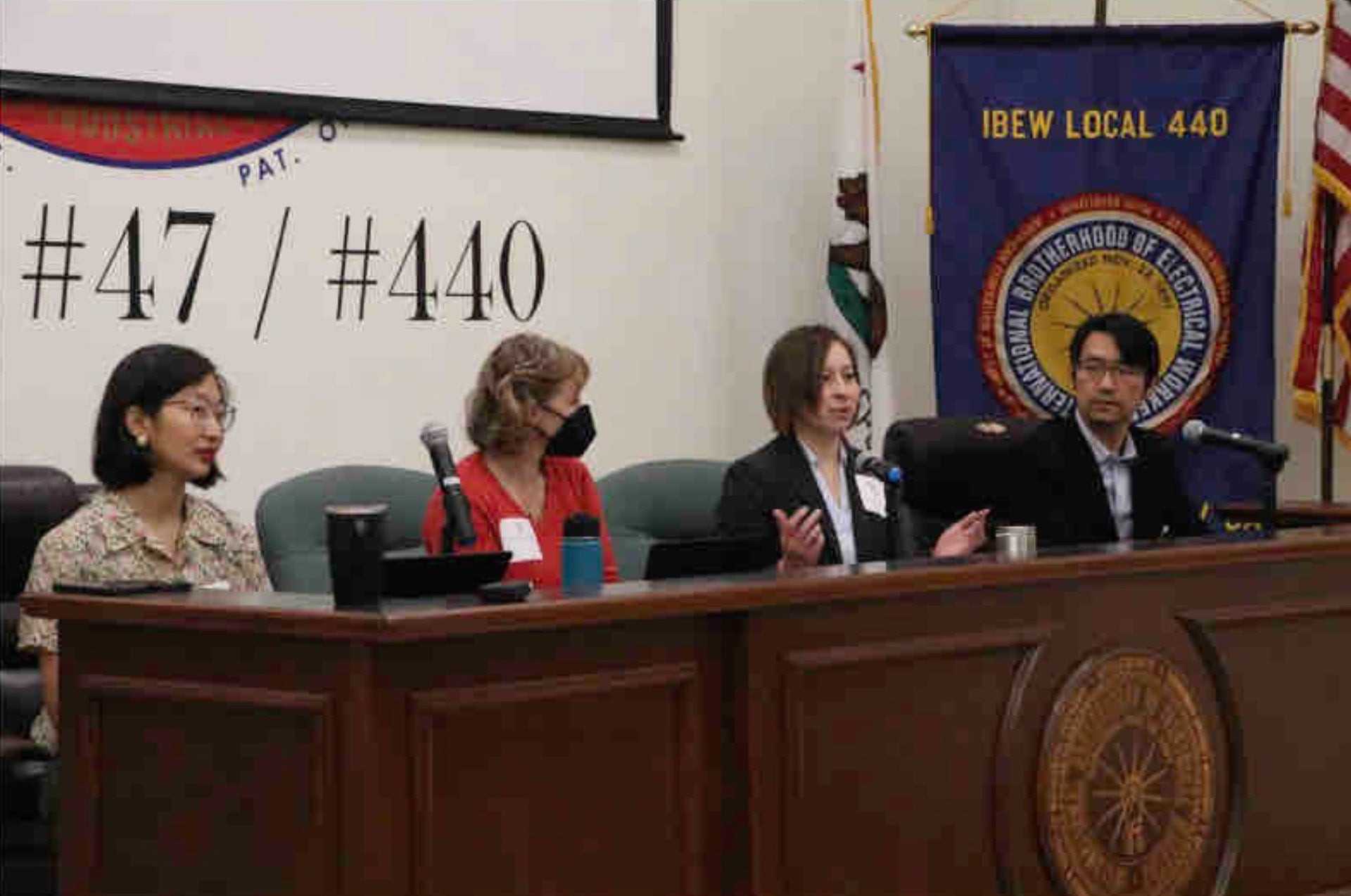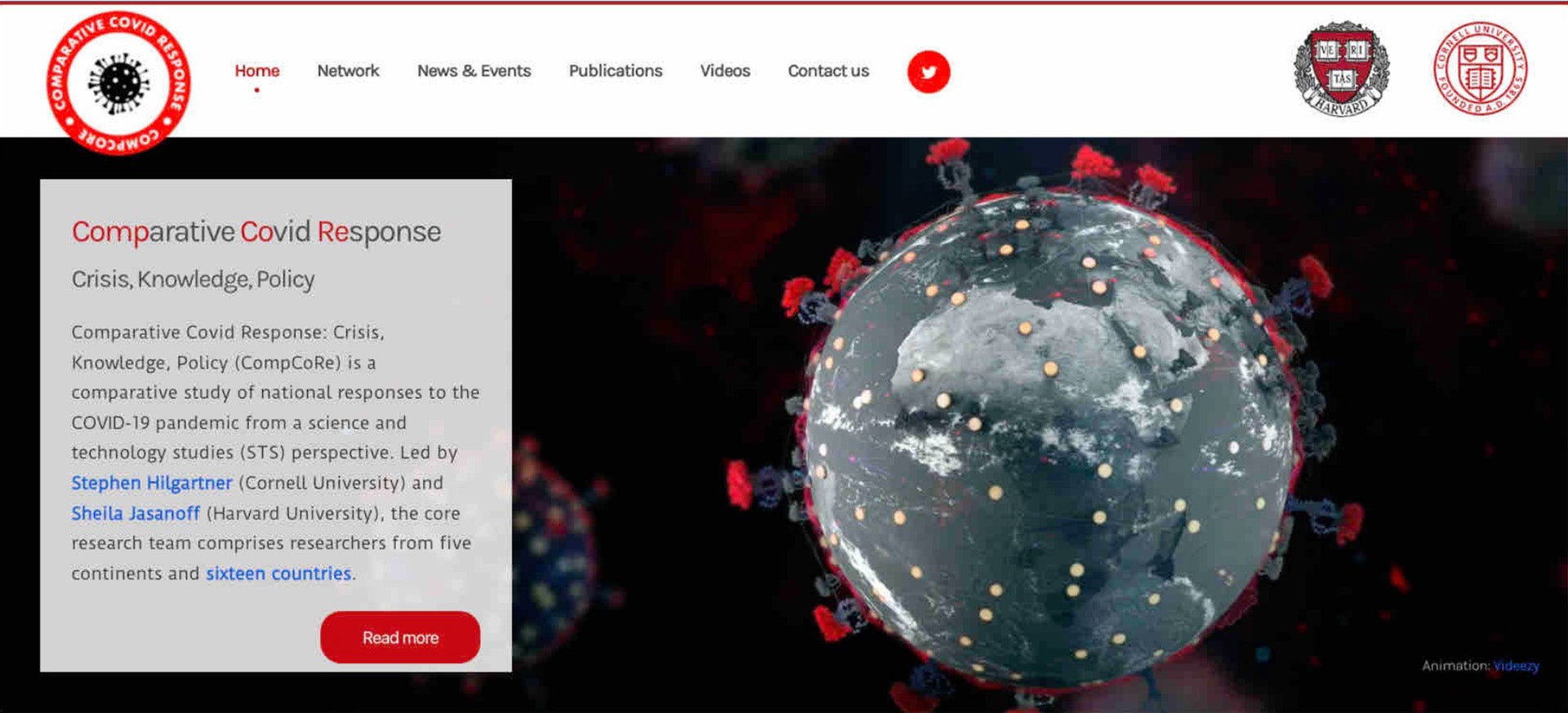
Transdisciplinary Research: Featured Current STS Projects by University
UCR
CREATE-IE
Collaborative Research to Expand and Accelerate Transportation Electrification in the Inland Empire
The Inland Empire has quickly become one of the nation’s largest logistics clusters, with over a billion square feet in warehouse space. The rapid growth of the logistics industry in the region has raised many concerns about the social and public health threats to local communities. Freight facilities such as warehouses attract a large amount of diesel trucks, whose emissions have been associated with various health risks. One way to address these concerns is to electrify the current truck fleet, but doing so will also require development of a new charging infrastructure network for the electric trucks. Part of the solution could involve turning underutilized space at warehouses into public charging stations for electric trucks. It would be convenient for truck operators to be able to charge their trucks while visiting warehouses. Warehouse owners would benefit from a new revenue stream. The operation and maintenance of the charging stations would expand employment opportunities for local workers. Lastly, the increased adoption of electric trucks would reduce diesel emissions and the associated health impacts on local residents.
This project - funded with a one-year OASIS Internal Funding Award - brought together faculty from the Bourns College of Engineering (BCOE) and the College of Humanities, Arts, and Social Sciences (CHASS) to study the technical feasibility, community impacts, and workforce implications of transportation electrification in the Inland Empire, with a specific focus on the economic and social costs and benefits of transforming some warehouse spaces into public charging stations for electric trucks and, possibly, other vehicles. The results and findings from this seed project were used to inform the development of a larger research program aimed at expanding and accelerating transportation electrification in the Inland Empire, especially in the medium-duty and heavy-duty sectors.
On June 1, 2023 Plug In IE, a program of the Inland Empire Labor Institute, organized panel discussions and workshops to gather insights on the challenges and opportunities of moving away from diesel trucks. UC Riverside’s College of Humanities and Social Sciences, Center for Environmental Research and Technology and Office of Sustainability joined Plug In IE, the IE Labor Institute, and the Inland Empire Labor and Community Center to host the 'CREATE-IE' research workshop.
Cornell University & Harvard University
CompCoRe
CompCoRe is one of the largest qualitative comparative projects investigating national responses to the COVID-19 pandemic.
The intellectual framework for CompCoRe is grounded in theories and methods developed in the field of science and technology studies (STS). Team members include senior and junior STS and legal scholars, as well as, activists and policy analysts. The diversity of the country team members reflects the scope and breadth of expertise and perspectives being contributed to the project. Teams from Core countries work collaboratively to define research questions, generate data, share analytic insights, and produce academic papers, policy briefs, and other forms of analysis.
History
The CompCoRe project was conceived by Stephen Hilgartner, Cornell University, Sheila Jasanoff, Harvard Kennedy School, and their long-standing colleagues and collaborators, affiliated with the Science and Democracy Network (SDN). As the Covid-19 pandemic ravaged the world in April 2020, Hilgartner and Jasanoff applied for the National Science Foundation’s Rapid Response Research (RAPID) Grant on the Covid-19 pandemic. They launched the project on May 1 after receiving NSF funding.
The project aimed to answer an enduring question that long preoccupied STS scholars and policy makers: what makes expert knowledge credible, legitimate, and reliable for use in public policy? In the context of the pandemic, the project broke this broader question down into four lines of inquiry:
- how the pandemic is framed as a policy issue;
- what sources of scientific and policy advice policy makers rely on;
- to what extent and how effectively governments serve as synthesizers; and,
- disseminators of knowledge and technical capacity; and what knowledge claims and policy concepts became subjects of debate.
Arizona State University
Carbon Dioxide Removal (CDR) Technology Public Forums and Application to Governance Frameworks
https://cspo.org/research/cdr/
PROGRAM AREAS – RESPONSIBLE INNOVATION, SUSTAINABILITY, SCIENCE AND TECHNOLOGY POLICY, COMPLEX SOCIO-TECHNICAL SYSTEMS, EDUCATION AND ENGAGEMENT
Current climate projections suggest that traditional sustainability efforts alone will not be sufficient for achieving the international community’s ambition of staying below a 2°C increase in global temperature in the coming decades; as such, utilizing drastic, novel approaches may also be necessary for stabilizing the climate. Carbon dioxide removal (CDR) could be a key component of this greater suite of climate measures, encompassing a range of emerging climate technologies which address both the removal and long term storage of CO2 through biological and geochemical sinks, direct air capture, and associated storage solutions.
At this stage of the technology’s development, however, the social and policy dimensions of CDR research and potential deployment have not adequately been investigated despite high uncertainty, urgent decision stakes, and disputed values that necessitates societal engagement. There are upstream societal concerns involving what to research, midstream concerns about how and when to research, and downstream concerns about deploying the technology based on research outcomes. It is unclear at this time who would benefit and who would suffer from the deployment of such technologies, where they might be located, what their effects would be on surrounding populations, and what their impact would be to those already most vulnerable in society. The potential for social disruption and contestation surrounding CDR resource utilization magnifies the importance of exploring the social dimensions of such questions and how they could factor into the development of CDR governance frameworks.
Building upon a decade of public engagement experience through the ECAST network, this project will use inclusive, openly framed, and deliberative citizen forums to engage the public and other stakeholders on CDR interventions—with an emphasis on ocean-based approaches—and how they can be integrated into governance frameworks. Through workshops with key stakeholders and structured deliberations with hundreds of both American and Canadian citizens, the research team will gain important insights into how CDR research and governance can be responsive to public perspectives and concerns with an emphasis on equity and the role of geographic and demographic diversity in decision-making.
Funder
This project is supported in part through a generous grant from the Alfred P. Sloan Foundation (2022-9921) to Arizona State University for applying Participatory Technology Assessment (pTA) methodologies to better understand public perceptions of carbon dioxide removal (CDR) research and development in the US and Canada.
Partners
- The Consortium for Science, Policy and Outcomes (CSPO) at Arizona State University
- The University of Calgary
- The Museum of Science, Boston
- The Expert and Citizen Assessment of Science and Technology (ECAST) Network


